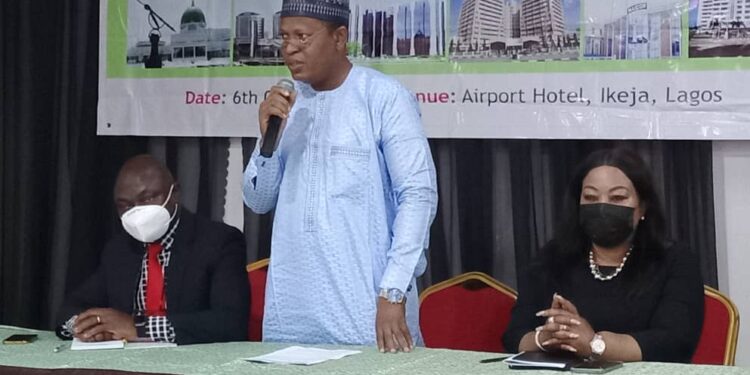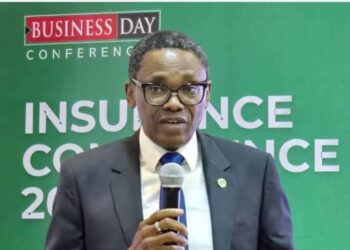The National Insurance Commission has reached the table land of nationwide awareness campaigns for compulsory insurance on public buildings and buildings under construction above two floors, and the Commission is moving the bar for the final lift a notch higher to give the implementing federal and state agencies a good view of the whole horizon to cover.
The Commissioner for Insurance, Mr. Sunday Thomas made this clear at sensitisation workshop for federal and state fire service officers to lay out “the necessary knowledge to properly enforce the insurance of public buildings and buildings under construction above 2 floors,” and was confident that at the end of the workshop, it is expected that federal and state Fire Service Officers will now have the knowledge of insurance of public buildings.”
Elated Thomas said the turnout is an indication of better participation in the next batches lined up to educate officers of fire services of their responsibilities and the benefits inherent if public buildings are adequately insured.

He explained that the essence of insurance of public buildings and buildings under construction above 2 floors is law driven to cushion the impact and reduce the burden and liabilities that the owner/government would have to bear in likely occurrences of catastrophic events such as natural disasters.
With the risk transferred to insurance market he said the usual government financial intervention to victims would be saved and such money “channelled towards augmenting the needs of the citizenry, providing infrastructure, and creating employment among others.”
In the opening remark, the representative of the Comptroller General I. A. Liman, the consultant to FFS NL Global, Mrs Debbie Windele said the fire service maintenance fund “can turn the tide in the fire service in achieving its mandate. He notes, “This fund would certainly make issues of lack of equipment a story of the past in the fire sector in Nigeria.
However, she said all parties must play their part to make it a reality. “It is pertinent that both institutions work in tandem with one another and promote transparency in their dealing to realise the vision which has been set forth by the CG.”








































